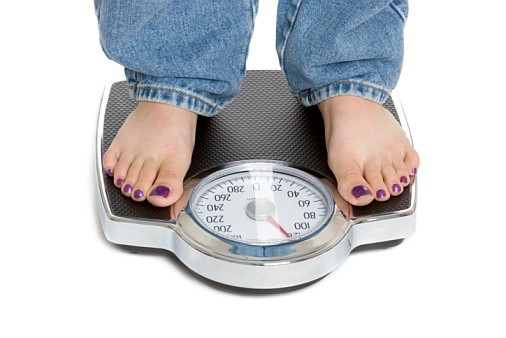Tips on getting rid of menopausal weight
June 1, 2012 at 8:29 a.m.
Most women understand that menopause is a life phase with unpleasant symptoms that will eventually subside no matter what they try, but trying to fight some symptoms, such as menopausal weight gain, is a good alternative to just letting nature take its course. No woman wants to put on excess poundage in elder or younger years because it can cause other problems like joint pain, diabetes and other serious conditions.
Typical symptoms of menopause include mood swings, hot flashes, headaches, weight gain and night sweats. By controlling dietary intake, concerned women can at least reduce some symptoms. After the cycle of menopause is completed, you can also deal with the challenge of fighting any weight gained during that time. Being aware of potential problems such as weight gain is important for all women as they approach the end of their monthly menstrual periods naturally, or if menopause arrives due to a surgical procedure.
Many experts are insisting that menopausal weight gain can be beneficial by helping the body prevent bone loss and easing hot flashes. This is not, however, a green light for any person to pack on the pounds as they mature. Fat contains hormones, but excessive obesity can lead to life-threatening conditions including diabetes. There needs to be a balance, and a good way to achieve this is by controlling diet and getting exercise to maintain a healthy lifestyle through menopause.
Diet and Menopause
Diet does not necessarily mean calorie restriction. In the best sense of the word, diet means eating menus that provide necessary nutrients in sufficient quantity that the body requires, fixing tasty meals, and enjoying the benefits that can be found in "healthy" foods. These include:
- Superfoods: Blueberries, cherries, walnuts, salmon, greens.
- Foods that provide essential stress reducing nutrients: Flaxseed, soy beans, yogurt and other foods are tasty and healthy for you.
- Foods that help reduce cholesterol: Fiber foods like fruits and vegetables.
- Lean proteins: More fish and poultry, less red meat.
Women naturally tend to accumulate fat around their middles, and this can become a problem for both the heart and lung areas. Some foods contain elements like Omega-3 fatty acids and Linoleic acid that help with losing that belly fat. Exercise on a regular basis for overall health, even if all you can do are chair exercises.
Boomers of both sexes normally require fewer calories as their lifestyles become less active. Cutting calories can be as easy as selecting low fat and reduced sugar foods. Opt for lighter meals spread throughout the day with a snack in between, so you never go more than three hours without eating. Try some new goodies like fruit smoothies or a nutrition bar. Remember that breakfast is still the most important meal of the day. It wakes up your daily metabolism; try including a good protein like an egg or a little peanut butter.
Be sure you get enough calcium to help offset the reduced estrogen production during menopause. Losing bone mass is natural with reduced hormones, but you can fight this tendency with exercise and calcium. Whether hormone replacement therapy is needed is a matter strictly for you and your doctor to discuss. As you approach menopause, be sure to consult your personal physician for guidance and advice about your own body and its needs. Don't be afraid and don't let menopausal weight gain get the better of your happy senior years.
Content Provided by Spot55.com





